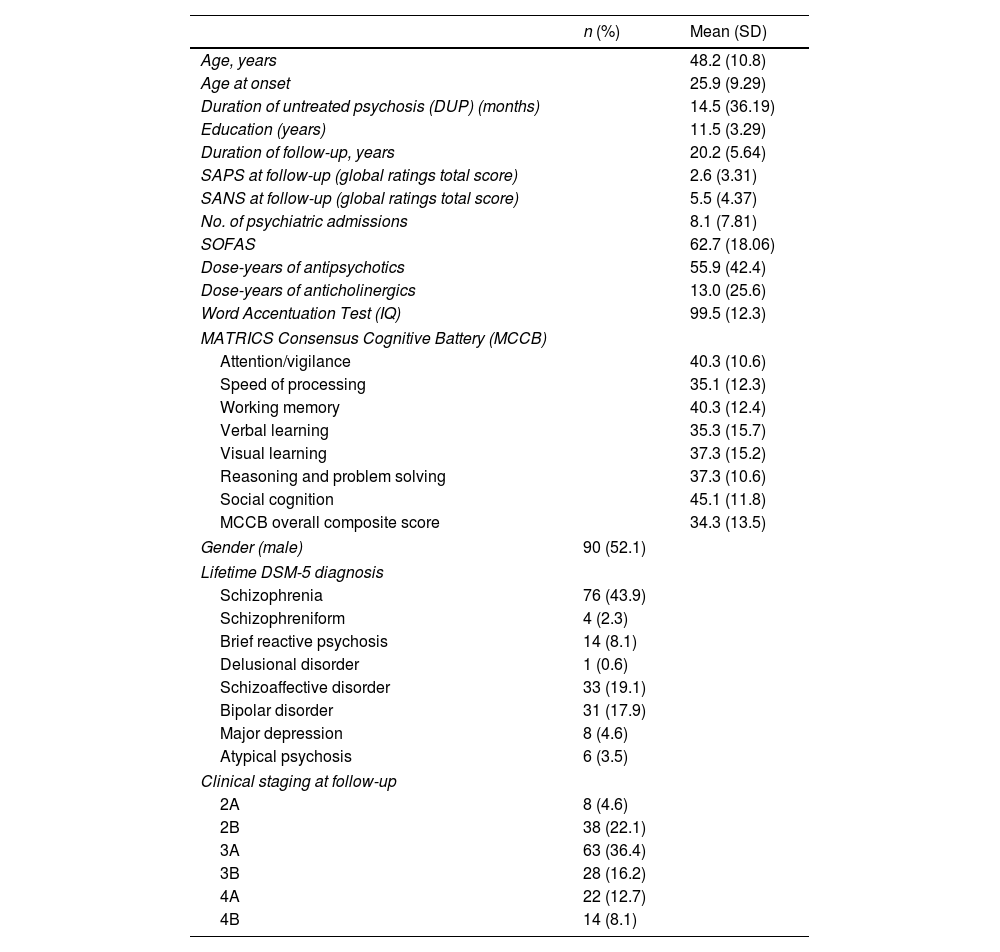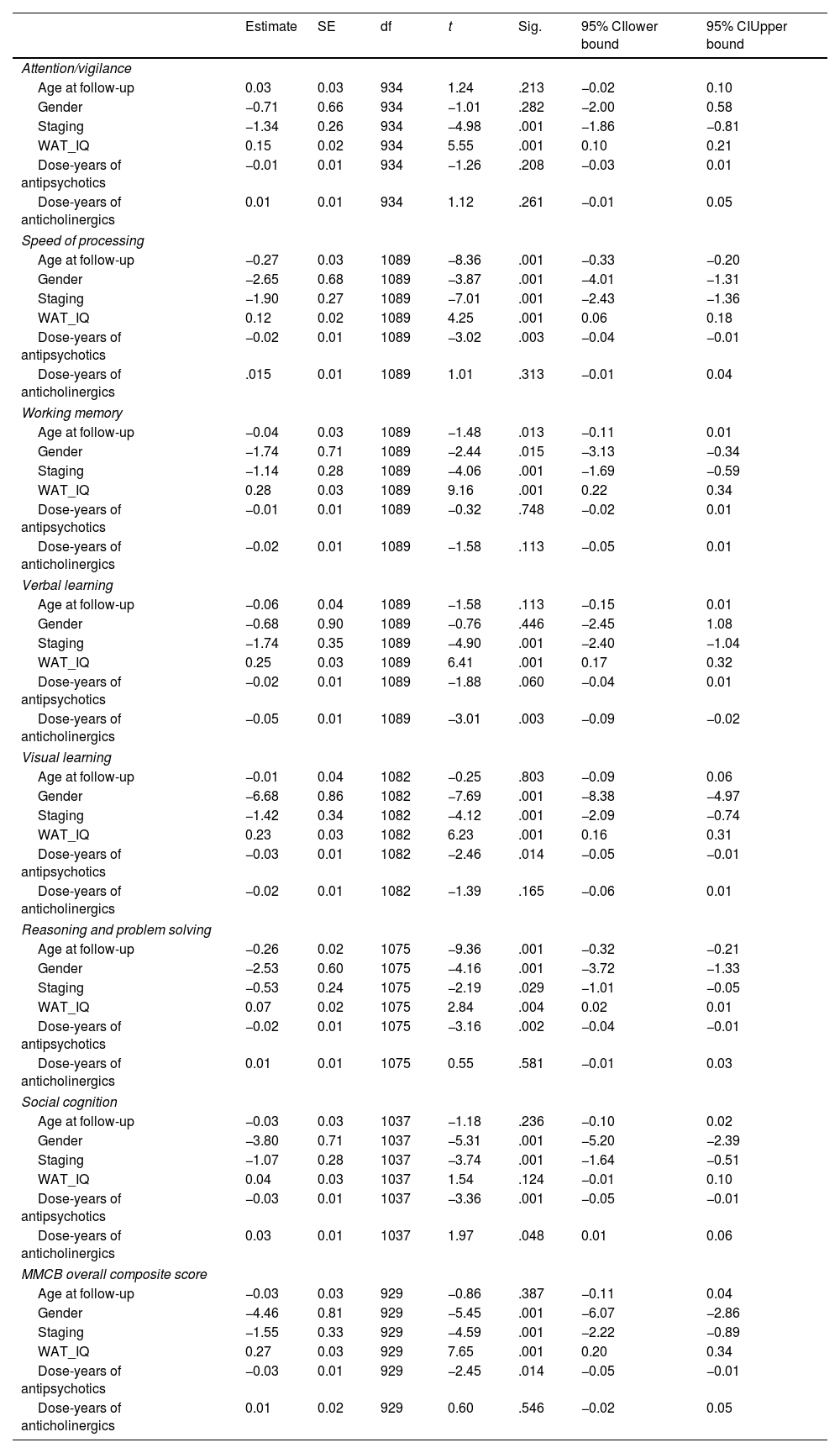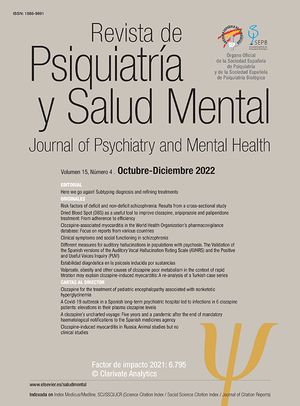Cognitive deficits are already present before psychosis onset but are a key feature of first-episode psychosis (FEP). The objective of this study was to investigate the cognitive outcomes of a cohort of FEP patients who were diagnosed using the clinical staging approach and were followed for up to 21 years.
We analyzed data from 173 participants with first-admission psychosis who were followed-up for a mean of 20.9 years. The clinical staging assessment was adapted from the clinical staging framework developed by McGorry et al.1 Cognitive assessment was performed using the MATRICS Consensus Cognitive Battery (MMCB) at the end of follow-up.
FEP patients who were longitudinally diagnosed in the lowest clinical stages (stages 2A and 2B) showed better performance in attention, processing speed, and MCCB overall composite score than those in the highest clinical stages (stages 4A and 4B). There was a significant linear trend association between worsening of all MCCB cognitive functions and MCCB overall composite score and progression in clinical staging. Furthermore, the interval between two and five years of follow-up appears to be associated with deficits in processing speed as a cognitive marker.
Our results support the validation of the clinical staging model over a long-term course of FEP based on neuropsychological performance. A decline in some cognitive functions, such as processing speed, may facilitate the transition of patients to an advanced stage during the critical period of first-episode psychosis.













